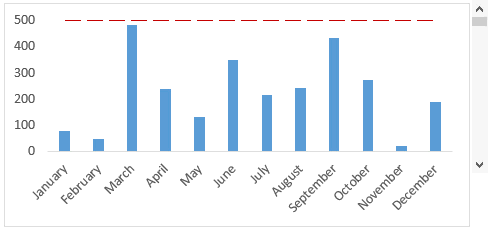PENGARUH STATUS SOSIAL EKONOMI ORANG TUA DAN LITERASI EKONOMI TERHADAP PERILAKU KONSUMSI MAHASISWA UNIVERSITAS HAMZANWADI
Keywords:
Socioeconomic Status, Economic Literacy, Student Consumption
Abstract
This study aims to: 1) To partially determine the Influence of Parents' Socioeconomic Status and Economic Literacy on The Consumption Behavior of Hamzanwadi University. 2) To find out whether simultaneously the Socioeconomic Status of Parents and Economic Litration have a significant effect on the Consumption Behavior of Hamzanwadi University. 3) To find out the most dominant factor affecting the Consumption Behavior of Hamzanwadi University. The method used is a quantitative method. The population used in this study are parents and students of Universias Hamzanwadi who have different Parental Economic Status to the Consumption Behavior of Hamzanwadi University and sampling techniquesuses purposive random sampling. Data collection is in the form of distributing questionnaires. The data analysis techniques in this study are classical assumption testing, multiple regressionlinary, and hypothesis testing. The results showed variables (1) Economic Status of Parents (X1) towards Student Consumption Behavior (Y) Economic of Hamzanwadi University. From the results of the study that it has no effect on the Consumption Behavior of Hamzanwadi university both pesially and simultaneously because the Socioeconomic Status of Parents has a sign value of 0.392 > 0.05 and a calculated t value of 0.898 0.05 and a calculated value of 1.089 < 4.044 so it can be concluded that there is no influence of Parents' Socioeconomic Status on Student Consumption. (3) From the two discussions above, the variables of Socioeconomic Status of Old Orag (X1) and Economic Literacy (X2) have no effect either initially and simultaneously on Student Consumption (Y) Study on Economic Education of Hamzanwadi University because in accordance with the results of the researchers above, it shows that the significance value of the Influence of Socioeconomic Status of Parents (X1) and Economic Literacy (X2) on Student Consumer Behavior (Y) is 0.360 > 0.05 and the value of F count 1.147 < 4.044, so it can be concluded that only HO is accepted while H1, H2 and H3 are rejected. This means that there is no significant, partial and simultaneous influence of Socioeconomic Status of Parents (X1) and Economic Literacy (X2) on Student Consumption Behavior (Y).References
Afif Muhammad, 2017. pengaruh litersi ekonomi dalam keluarga dan latar belakang sosial ekonomi orang tua terhadap pengambilan keputusan berkonsumsi pada mahasiswa pendidikan ips universitas islam negri maulana malik Ibrahim malang, jurnal pendidikan universits islam negri maulana malik Ibrahim malang, volume 5.
Ahmadin, 2013.metode penelitian social. makasar: Rayhan Internasional
Auliya Luthfiyatul. 2017. Pengaruh Status Sosial Ekonomi Orang Tua Terhadap Perilaku Konsumsi Mahasiswa. Skripsi Ekonomi Syariah, Institute Agama Islam Negeri (IAIN) Purwokerto.
Damsar, indrayani.2011.Pengantar Sosiologi Ekonomi. Jakarta: prenadamedia group.
Fitri Riska, 2016. Pengaruh Status Sosial Ekonomi Orang Tua, Literasi Ekonomi, Dan Life Style Terhadap Perilaku Konsumsi Mahasiswa Jurusan Pendidikan Ekonomi Ikip Pgri Bojonogoro. Jurnal Edutama Fakultas Pendidikan Ilmu Pengatahuan Sosial, IKIP PGRI Bojonogoro, Volume 3, Nomor 2
Juliana, 2013.Pengaruh Literasi Ekonomi Terhadap Perilaku Konsumsi Mahasiswa Pendidikan Ekoomi Fkip Untan.Artikel Penelitian Program Studi Pendidikan Ekonomi Jurusan Pendidikan Ilmu Pengatahuan Sosial Fakultas Keguruan Dan Ilmu Pendidikan Universitas Tanjungpura.
Ahmadin, 2013.metode penelitian social. makasar: Rayhan Internasional
Auliya Luthfiyatul. 2017. Pengaruh Status Sosial Ekonomi Orang Tua Terhadap Perilaku Konsumsi Mahasiswa. Skripsi Ekonomi Syariah, Institute Agama Islam Negeri (IAIN) Purwokerto.
Damsar, indrayani.2011.Pengantar Sosiologi Ekonomi. Jakarta: prenadamedia group.
Fitri Riska, 2016. Pengaruh Status Sosial Ekonomi Orang Tua, Literasi Ekonomi, Dan Life Style Terhadap Perilaku Konsumsi Mahasiswa Jurusan Pendidikan Ekonomi Ikip Pgri Bojonogoro. Jurnal Edutama Fakultas Pendidikan Ilmu Pengatahuan Sosial, IKIP PGRI Bojonogoro, Volume 3, Nomor 2
Juliana, 2013.Pengaruh Literasi Ekonomi Terhadap Perilaku Konsumsi Mahasiswa Pendidikan Ekoomi Fkip Untan.Artikel Penelitian Program Studi Pendidikan Ekonomi Jurusan Pendidikan Ilmu Pengatahuan Sosial Fakultas Keguruan Dan Ilmu Pendidikan Universitas Tanjungpura.
Published
2024-02-03
How to Cite
Baiq Yuliana Rizkiwati, Abdul Gunawan, Huzain Jailani, & Muhammad Zainul Majdi. (2024). PENGARUH STATUS SOSIAL EKONOMI ORANG TUA DAN LITERASI EKONOMI TERHADAP PERILAKU KONSUMSI MAHASISWA UNIVERSITAS HAMZANWADI. Literasi: Jurnal Pendidikan Guru Indonesia, 2(4), 262-273. https://doi.org/10.58218/literasi.v2i4.803
Section
Articles










